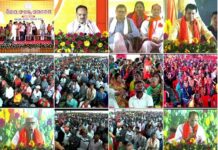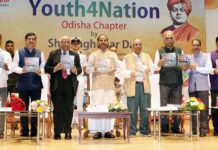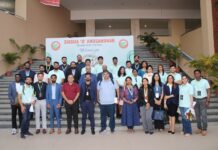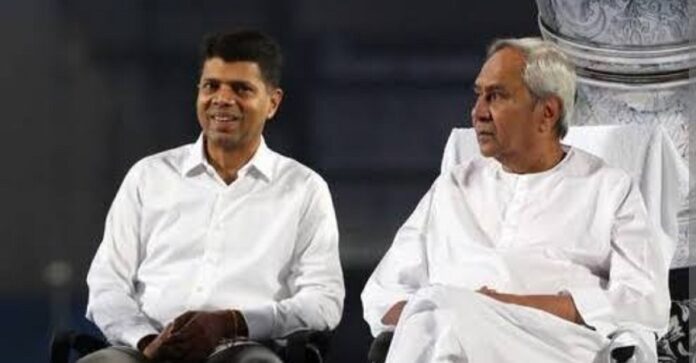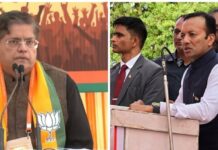By Dr Bhabani Shankar Nayak
LONDON: People in Odisha face a myriad of challenges, ranging from economic uncertainties, unemployment, illiteracy, homelessness, illness, underdevelopment, and regional tensions to environmental crises and public health emergencies in both urban and rural areas. Navigating these complex realities demands the streamlining of resource allocation to prioritize the welfare of the state’s people. This crucial aspect of governance takes a backseat to the pre-electoral propaganda of the Odisha government, led by Mr. Naveen Patnaik.
His politically inexperienced advisors and technocratic interventions by trusted bureaucrats result in the implementation of misplaced priorities that prioritize the welfare of the people in a secondary position before the populist politics of the BJD led by Mr. Naveen Patnaik. This recurring issue has plagued his government for more than two decades. The phenomenon of misplaced priorities shapes the managerial politics of Mr. Naveen Patnaik, but it fails to contribute to and address the development needs of the people in the state. The focus and resources are directed away from pressing issues such as education, health, livelihood generation, and social development that require immediate attention.
The Government of Odisha, under the leadership of Mr. Naveen Patnaik, has launched a program called “AMA ODISHA NABIN ODISHA” (Our Odisha, New Odisha), modifying the earlier initiative “Ama Gaon Ama Bikash” (Our Village, Our Development). Unfortunately, the BJD government in Odisha, led by Mr. Naveen Patnaik, has only recently recognized the need “to transform rural Odisha, taking measures to augment rural infrastructure, leading to accelerated growth, as well as to preserve the rich cultural heritage” after ruling the state for the last two decades. However, the misplaced priority of this program is evident from its conceptualization to implementation.
The development of primary schools, banking, sports, and Mission Shakti infrastructures represents crucial steps toward the social and economic empowerment of the people. The development of heritage sites is a well-intentioned move to uphold the rich cultural legacies of the state. However, unequal resource allocation highlights the misplaced priorities of the Odisha government. The crumbling health and educational infrastructures lack basic amenities, yet this government is allocating resources to develop amenities near places of worship.
The government directs resources to preserve the Lord Jagannath culture, even though the people of Odisha have preserved this cultural heritage for centuries without any form of state patronage or government funding. It is challenging to understand why this government is investing public money in religious activities and infrastructure.
This expenditure raises concerns about the secular credentials of Mr. Naveen Patnaik and his government in Odisha. While giving equal importance to all places of worship is one aspect of secularism, the separation of the state from religion is central to the secular ethos of a modern constitutional state like Odisha. Mr. Naveen Patnaik and his advisors appear intellectually bankrupt and ill-informed in their efforts to empower citizens and deepen democratic development in the state.
The project-wise sectoral analysis of the budget for “AMA ODISHA NABIN ODISHA” reveals disturbing realities concerning the misplaced priorities of the BJD government in Odisha. A significant portion of public resources is earmarked for spending on religious infrastructure that does not contribute to rural development or the welfare of the people. Investments in religious projects do not alter the material realities of the populace; instead, they restrain the growth of scientific temper and impede the development of a secular and inclusive culture.
The misplaced development priorities and the disproportionate allocation of resources for religious infrastructure, at the expense of human development, are outcomes of competitive religious politics between the BJP and BJD. Such competitive religious politics fosters a reactionary society where the masses endure hunger, homelessness, ill-health, and crime. The ruling elites at the center and state concentrate on religious infrastructure, often outsourcing their failures to gods and goddesses, while most of the people suffer from the material conditions of underdevelopment in the state.
In the age of artificial intelligence, the Odisha government is prioritizing religious infrastructure over health and education. It is evident that the ruling elites of the state are not inclined towards fostering scientific, secular, and inclusive consciousness for the deepening of democracy and the empowerment of citizens. One of the key areas where misplaced priorities become apparent is in the balance between populist cultural and religious considerations and social welfare under the vaguely defined project of “AMA ODISHA NABIN ODISHA.”
The narrative of the Odisha government often finds itself preoccupied with short-term electoral gains, neglecting long-term investments in education, healthcare, and social services. The emphasis on religious and cultural infrastructure results in the growth of a reactionary society where illiteracy, unemployment, income inequality, inadequate social safety nets, and a compromised quality of life for the most vulnerable segments of the population in the state define its future.
The sustainable development of the people depends on prioritizing development policies and directing resources towards human development. Focusing on human development and welfare can truly transform the state and its people in Odisha. Transient and narrowly defined projects that concentrate on the development of religious infrastructure may only lead to the creation of a reactionary society, pushing people and their future into darkness in Odisha, creating a fertile ground for the growth of Hindutva politics.
Therefore, Mr. Naveen Patnaik and his government must strategically manoeuvre development policies and projects to focus on transforming the material conditions of the people for the progress of the state while upholding secular and inclusive cultures. Short-term political gains from competitive religious politics may only create fertile ground for Hindutva politics of the BJP to thrive in the state, thereby eroding its secular and inclusive cultures.
The future of Odisha is intricately linked to the future of its people. Therefore, Mr. Naveen Patnaik and his government must shape the present with progressive politics and welfare policies that aim to secure Odia culture and the overall well-being of the state. Populism, as a tool, erodes trust in the state and government, potentially creating long-term crises in the state when overcoming various challenges of development and underdevelopment in Odisha. Misplaced priorities not only fail to transform the state and society along a progressive path toward prosperity but also have the potential to derail it. A focus on strategic and inclusive development policies is crucial for ensuring a positive trajectory for Odisha and its people.
(The writer Dr Bhabani Shankar Nayak, hails from Eastern Indian State of Odisha, Presently Teaches at University of Glasgow, London, UK and has 2 Decades of Teaching Experience in British Universities. Views Expressed are Personal).




